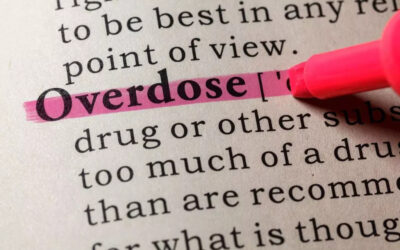Contents
It’s all about recognizing how you feel while eating and enjoying the taste, texture and smell of your foods. Setting a regular exercise regimen can come with a multitude of health benefits, but it may be especially useful after an episode of unplanned binging. Another study showed that people who ate more vegetables lost more weight and felt less hungry compared to a control group . Loading up on veggies post-binge is another effective strategy to help prevent overeating. While practicing yoga right after overeating can definitely be helpful, adding it to your weekly regimen may be even more beneficial over the long term.
Better to use a rule like, “I’ll only ever eat chocolate on the last weekend of each calendar month” because it eliminates your chocolate decisions most of the time. For example, psychologists Millner and Olds wired an electrode directly into rats’ brains and allowed them to activate it by pressing a lever. In experiment after experiment rats pressed the lever thousands of times per day. Rats would crawl over painful electrical grids to press the lever.
What medications are used to treat binge-eating disorder?
The first theory says those with the propensity to binge on both alcohol and food struggle between “discipline and desire,” and they surrender to the desire as an emotional reward. This supports research findings that dieting can lead to binge eating. To maintain metabolism and energy levels, eat lunch and dinner with healthy snacks in between . A slow and steady approach is not only more sustainable but allows you to make gradual changes that reduce cravings and the risk of binge eating. Protein may also impact levels of hormones like ghrelin that can influence hunger.
The disorder appears to run in families, which may reflect a genetic predisposition to developing eating disorders or a familial preoccupation with food or weight. Similarly, some experts suspect that psychological factors such as low self-esteem, poor body image, a penchant for yo-yo dieting, or stress can trigger or exacerbate episodes of binge eating. Unhealthy diet and alcohol are serious health problems, especially in adolescents and young adults. “Binge” is defined as the excessive and uncontrolled consumption of food and alcohol . Both behaviors are frequent among young people and have a highly negative impact on health and quality of life. Several studies have explored the causes and risk factors of both behaviors, and the evidence concludes that there is a relationship between the two behaviors.
Communication Disorders
It is more prevalent among women than men in the U.S. and afflicts individuals from all racial and ethnic groups. The condition is found more often among people seeking weight-loss treatment than in the general population. About 15 percent of the mildly obese, including those who try to lose weight on their own or with commercial products, are thought to have the disorder. Your medical care provider or mental health professional will ask additional questions based on your responses, symptoms and needs. Preparing and anticipating questions will help you make the most of your appointment time.
Studies indicate that yoga can help encourage healthy eating habits and reduce the risk of emotional eating. One small, 2-month study showed that eating one large meal per day increased levels of blood sugar and the hunger-stimulating hormone ghrelin to a greater extent than eating three meals per day . Eat more whole, unprocessed foods, such as fruits, vegetables, and whole grains, and moderate your intake of treats rather than excluding them from your diet altogether. This can help reduce binge eating and promote better health. Almost everyone overeats on occasion, such as having seconds or thirds of a holiday meal.
In addition to increasing the risk of injury, binge drinking impairs the body’s ability to heal from those injuries. A single night of binge drinking has a number of other effects, especially at higher amounts. For an average-sized person, the liver can only break down about one standard drink per hour. If you drink more https://soberhome.net/ alcohol than what your liver can process, your blood alcohol content will increase. Long-term damage from heavy alcohol use isn’t limited to people with alcohol use disorder. In order to meet the criteria for binge-eating disorder, the binge-eating episodes must occur, on average, at least once a week for three months.
If you are preoccupied with thoughts of food because you’re bored, then find something else you enjoy doing in the evening. If you notice that you eat when you are anxious or stressed, try to find another way to let go of negative emotions and relax. Here are 10 things you can do to stop eating late in the evening or at night.
Binge-Eating Disorder (Compulsive Overeating) Resources
They’re packed with potassium, which can ease the effects of a sodium-high diet and help level out blood pressure. Verywell Health uses only high-quality sources, including peer-reviewed studies, to support the facts within our articles. Read eco sober house cost our editorial process to learn more about how we fact-check and keep our content accurate, reliable, and trustworthy. They are not substitutes for professional care, but they can complement therapies offered by a healthcare provider.
Fad diets can often be very unhealthy, and studies show that overly restrictive eating methods may trigger episodes of binge eating. When you have binge-eating disorder, you may be embarrassed about overeating and vow to stop. But you feel such a compulsion that you can’t resist the urges and continue binge eating.
- A person with binge-eating disorder may become an expert at hiding behavior, making it hard for others to detect the problem.
- Lipogenesis also increased, but overall, the group showed no changes to liver fat.
- Women who had both bulimia and alcohol addictions scored higher on the Impulsivity scale than women who had only bulimia, according to one study on the comorbidity.
- Trying to diet can trigger more binge episodes, leading to a vicious cycle that’s hard to break.
- Nighttime eating may be the result of overly restricted daytime food intake, leading to hunger at night.
Practicing mindfulness meditation or doing routine breathing exercises may also help. No matter why someone binges, there are plenty of treatment options available for those who seek help. Naturally the pain and guilt that come in the aftermath of a binge can trigger stress, which can trigger another binge — not exactly a fun cycle to get caught in. Once someone feels a need to binge in private or schedule binges around work and social obligations, it’s time to ask why. Try finding a type of physical activity that you actually enjoy.
How to Stop Binge Eating in Three Unusual Steps
A 2013 study looked at the relationship between food and impulsivity. Study participants were people with overweight or obesity who either had BED or didn’t have the condition. Results showed that the mere sight of food can act as a trigger for the body’s reward and disinhibition responses. Researchers observed this happened more often in participants who had BED.
Now is the only moment you can use your hands, arms, legs, mouth, and tongue to put food in your mouth. Now is the only moment you can choose to chew and swallow anything. Knowing that helps many people to think twice about overeating when they’re stressed because they don’t want to think of themselves as abusing drugs. Now, there are some very specific applications of this process that answer some very frequently asked questions about binge eating. This is why people feel like all their best-laid plans go out the window at the moment of temptation. Those plans are in their higher brain, but the reptilian brain is taking over.
To diagnose binge-eating disorder, your medical care provider may recommend a psychological evaluation, including discussion of your eating habits. These plans often use cognitive behavioral therapy , which has been shown to help with many eating disorders. According to a 2015 review of studies, lack of sleep and short sleep duration have been linked to higher calorie intake and poor-quality diets. Over a long period of time, poor sleep can increase your risk for developing obesity and related chronic diseases.
Alcohol Changes the TYPES of Foods You Crave
A mug of it is chock-full of flavonoids — they lower your levels of LDL, or “bad” cholesterol, and can help get high blood pressure back to normal, too. Whole grains, fruits, and vegetables also offer plenty of dietary fiber. Fiber moves slowly through the digestive tract, keeping you satiated for a longer period of time. Learning to put yourself first is a form of self-care that can boost your health and help you better love those around you. It can also help burn some of the extra calories that you might have consumed during a binge.
Eating and may reduce common triggers like stress, depression, and anxiety. This technique can prevent overeating by helping a person learn to recognize when they no longer feel hungry. People who are diagnosed with BED experience episodes of eating unusually large amounts, even when they’re not hungry. After an episode, they may feel a strong sense of guilt or shame. Binge eating disorder is considered the most common feeding and eating disorder in the United States .
After an unplanned binge, try going to bed a little earlier than usual to ensure you’re able to fit in a full night of sleep and get a fresh start the next day. It’s also helpful to remember we do not just overeat for “comfort.” See, most of us aren’t binging on whole, natural foods. Instead, we turn to some sort of industrially concentrated form of sugar, starch, salt, fat, oil, or excitotoxins. These are supersized doses of pleasure things that didn’t exist in the tropics while we were evolving. A better word for them might be “drugs.” What we are actually doing when we overeat things we know aren’t good for us is “getting high with food.” Sometimes overeaters are told to avoid fast food restaurants, birthday parties, etc.
50% of people with eating disorders also abuse alcohol or drugs. When a substance use disorder occurs along with an eating disorder such as binge eating disorder, stakes are raised. Eating whole grains, fruits, vegetables, and unprocessed foods can help you feel satiated compared to eating refined grains, sugars, and processed foods.
Walking, running, swimming, biking, and playing sports are just a few different forms of physical activity that can help relieve stress and reduce binge eating. For instance, one 6-month study in 77 people showed that increasing weekly exercise frequency stopped binge eating in 81% of participants . Conversely, keeping healthy foods on hand can reduce your risk of emotional eating by limiting the number of unhealthy options. Another study in 10 adults showed that taking 16 grams of prebiotic fiber daily increased levels of specific hormones that influence satiety and significantly reduced feelings of hunger .





